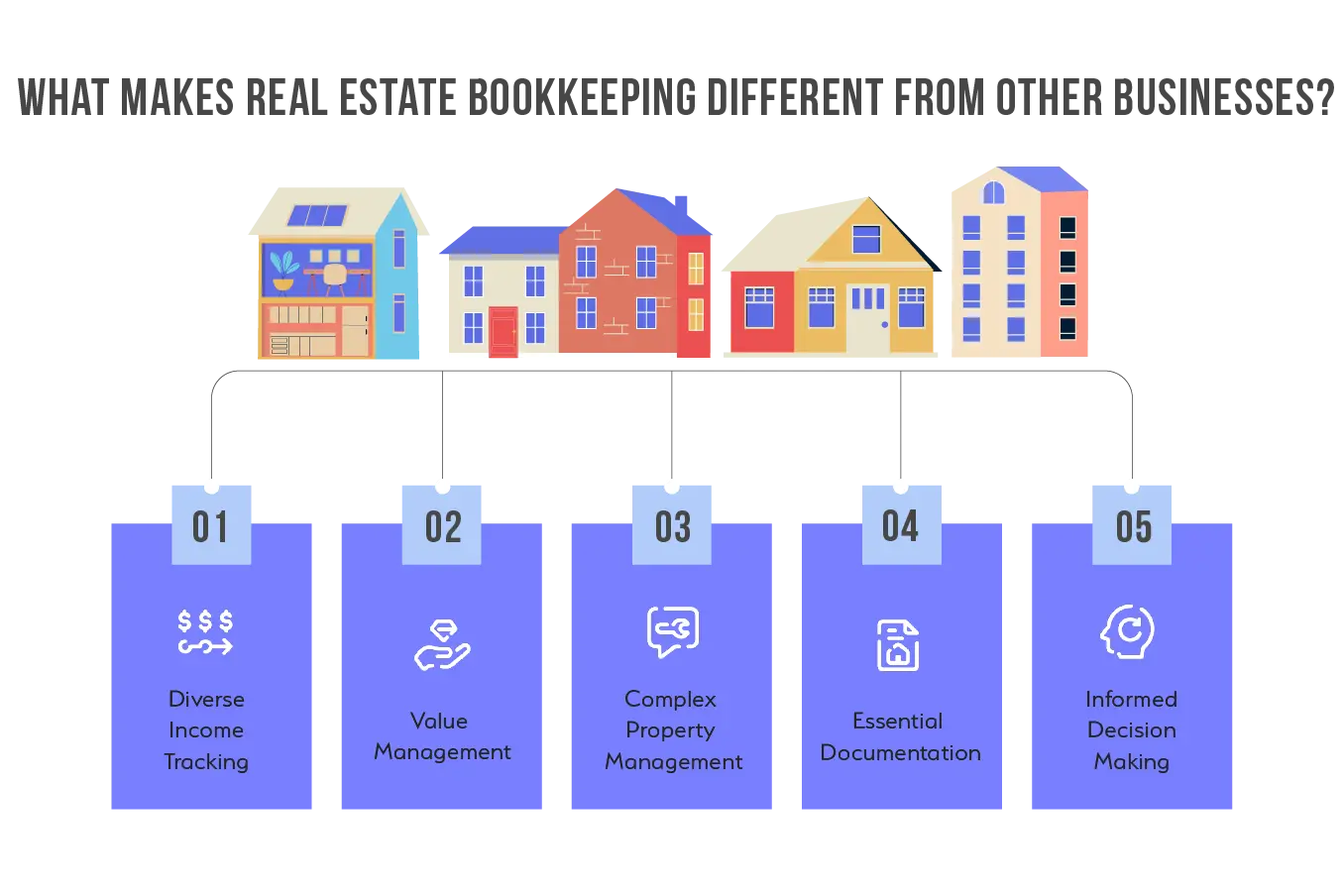Essential Tips for Thriving in Construction & Real Estate and How to Maximize Profits
Understanding the Relevance of Building Bookkeeping in the Construction & Real Estate Industry
In the construction and genuine estate industry, the significance of building and construction bookkeeping can not be overemphasized; it serves as a foundation for achieving economic success and operational effectiveness. Exploring these subtleties exposes crucial understandings that can reshape just how market players approach their monetary management approaches.
Secret Principles of Building And Construction Bookkeeping
Comprehending the special financial landscape of the building and construction industry calls for a solid grasp of vital concepts of building bookkeeping. Real Estate Tax Services. At its core, building bookkeeping varies considerably from basic audit methods due to the intricacies integral in project-based procedures. One fundamental principle is task costing, which involves tracking all expenses connected to individual jobs. This enables specialists to assess earnings properly and take care of budgets properly.
One more important concept is the use of development payment, which allows specialists to obtain settlements based on the portion of job finished. This approach helps preserve cash circulation throughout the job period, crucial for functional security. In addition, understanding income recognition is vital; the percentage-of-completion approach is frequently used to line up profits with project turning points, showing the task's economic truth.
Moreover, building and construction bookkeeping stresses the significance of exact projecting and budgeting, as tasks often extend over several months or years. Efficient job administration tools and software application can aid in keeping an eye on financial performance, making certain that all stakeholders have visibility into the task's monetary wellness. Grasping these principles gears up construction firms to navigate their unique financial difficulties and maximize their functional performance.
Difficulties One-of-a-kind to Building Jobs
What hurdles do construction projects face that set them apart from various other markets? One considerable obstacle is the integral intricacy of construction jobs, which often entail numerous stakeholders, consisting of specialists, clients, subcontractors, and suppliers. Each event may have different concerns and timelines, leading to sychronisation problems that can influence task delivery.
Additionally, building tasks are susceptible to changes in product prices and labor availability, which can disrupt timetables and budgets. Climate condition likewise present an one-of-a-kind obstacle, as unforeseen delays can result in enhanced expenses and prolonged timelines. Regulative conformity and allowing procedures differ by region, including an additional layer of complexity that need to be browsed meticulously.
Another special difficulty is the project lifecycle, defined by stages such as layout, bargain, purchase, and building. Each phase needs thorough planning and financial tracking to make certain source appropriation aligns with project goals. The possibility for change orders and scope alterations better makes complex financial management, necessitating durable accountancy methods to maintain profitability.
Last but not least, the sector often grapples with capital concerns, as repayments are typically contingent upon project milestones. This can stress funds, making reliable building bookkeeping vital to getting rid of these challenges.

Benefits of Accurate Financial Monitoring
Accurate financial monitoring works as a keystone for effective building job administration, particularly taking into account the unique obstacles dealt with by the market. By preserving exact financial documents, building companies can boost decision-making processes, permitting managers to allot resources efficiently and react swiftly to monetary restraints.
One of the crucial benefits of exact financial monitoring is improved capital administration. Knowing when cash is useful source due from clients and when settlements to vendors are required assists prevent money shortages, making certain projects remain on schedule. In addition, it allows companies to determine disparities early, reducing the threat of budget overruns.
In addition, accurate economic information helps with effective job projecting. By analyzing past economic performance, companies can make enlightened estimates for future tasks, reducing the probability of unexpected prices. This foresight additionally aids in developing affordable bids, as top article firms can offer even more accurate rates to customers.
Last but not least, precise monetary monitoring boosts compliance with regulatory demands and legal commitments. By methodically recording expenditures and earnings, construction firms can quickly generate needed records for audits, securing themselves against potential lawful disagreements. In recap, exact monetary tracking is important for promoting economic security and advertising lasting success in the construction market.

Important Tools and Software Program
How can construction business properly manage their monetary data in an increasingly intricate landscape? The answer depends on leveraging necessary tools and software program tailored to the distinct needs of the building and construction and actual estate sector. Building and construction accountancy software provides robust services for tracking expenses, taking care of budgets, and creating financial reports. By utilizing dedicated systems, business can streamline their accountancy processes and make certain compliance with industry guidelines.
Popular building and construction accountancy devices, such as Sage 300 Building and Property, Perspective Panorama, and copyright Specialist, offer functions that facilitate project-based accountancy. These systems enable real-time monitoring of work expenses, pay-roll processing, and invoicing, enabling greater monetary presence and control. Additionally, cloud-based options provide the benefit of remote access, making sure that stakeholders can collaborate effectively no matter of their area.
Incorporating project administration software program with accounting tools additionally boosts operational effectiveness. This assimilation permits seamless data sharing, lowering the likelihood of errors and enhancing decision-making. Ultimately, choosing the ideal combination of necessary devices and software program is important for building business intending to optimize their financial management and sustain growth in a competitive market.
Ideal Practices for Building And Construction Accounting
Effective financial management in construction bookkeeping rests on the implementation of best practices that foster accuracy and openness. One core concept is the application of customized building and construction audit software program, which simplifies procedures such as pay-roll, payment, and work costing. This modern technology not just minimizes errors yet additionally improves reporting abilities.
One more vital method is preserving precise paperwork. Maintaining thorough documents of contracts, adjustment orders, and billings guarantees that all transactions are verifiable and traceable. When disputes occur., this level of documentation is particularly essential throughout audits or.
Regular financial reviews and settlements additionally contribute substantially to effective construction bookkeeping. By frequently comparing actual expenses to budgeted amounts, firms can recognize variances immediately and adjust their methods as necessary. Establishing a clear chart of accounts customized to the specific needs of the building sector further aids in organizing economic you can look here information, permitting more insightful evaluation.
Verdict
In conclusion, building accountancy functions as an essential component in the construction and realty market, promoting effective financial management and job success. By adhering to crucial concepts and using important tools, firms can navigate the special difficulties of building and construction tasks while profiting of accurate financial tracking. Carrying out finest methods not just improves earnings and capital management however likewise guarantees conformity with regulative requirements, eventually promoting lasting development within an affordable landscape.

In the building and genuine estate market, the significance of construction audit can not be overemphasized; it serves as a cornerstone for attaining economic success and functional effectiveness.Comprehending the distinct financial landscape of the construction sector calls for a solid understanding of essential principles of building bookkeeping. In summary, precise financial monitoring is vital for fostering financial stability and advertising long-lasting success in the building market.
